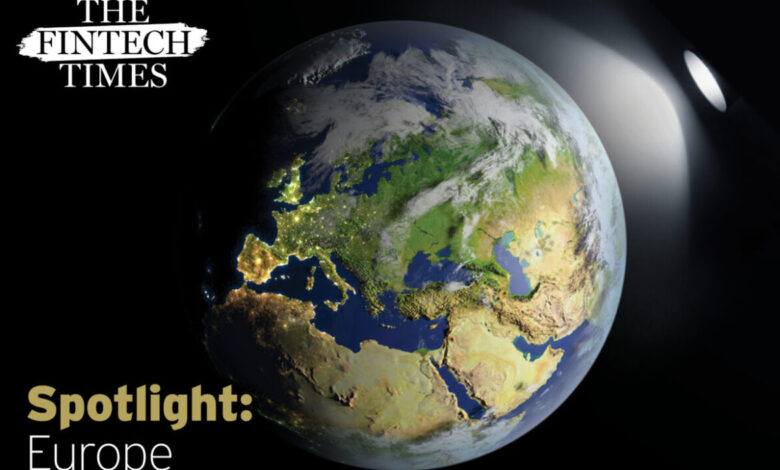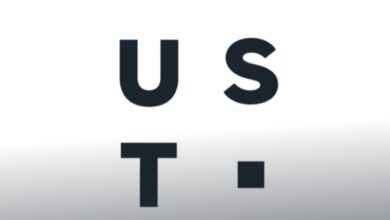Is 2024 the Year of Change? Disability, Inclusion and Awareness with Project Nemo

Sat around a kitchen table of an Airbnb in Vienna in October 2023, an unlikely trio united by a fiery passion to put right the inequalities in the world found themselves discussing inclusion and accessibility within fintech. Former payments CEO Joanne Dewar, disability advocate Kris Foster and graduate Ella Manley together realised that there was a major gap in awareness and understanding about disability inclusion across the board. And so, Project Nemo was born.
Officially launched at Innovate Finance Global Summit in London on 15 April 2024, Project Nemo is a pioneering new disability inclusion initiative that is seeking to accelerate disability inclusion journeys across the fintech industry.
Taking place over the next 12 months, the project aims to provide a ‘wake-up call’ and step change in disability inclusion, creating long-term changes through educating, empowering and showcasing across different facets of the disability community.
Making waves
Dewar, previously CEO of payments company Thredd (formerly GPS), is leading the charge on the project, after months of conversations with fellow fintech faces prompting her to get out and “do something”.
She said: “Over the past year I’ve had a number of different speaking slots across Europe discussing this topic. Every single time I’m met with so many people who tell me that I have to turn this into something. That it really matters and we’re not talking enough about it and what can be done.
“Every time I have this conversation, it’s followed with ‘this really matters to me, because…’.. And, then there’s a personal story that sits behind it – they tell me about their son, their aunt, their parents and the experiences they’ve had. And that’s the reality of disability and inclusion.
“More than one in five of the population has some form of disability so nearly every household is impacted in some way. And yet somehow it’s not something that we are thinking about, talking about and addressing in our industry. And that’s what I’m seeking to do – hold the mirror up to the industry and see what we can do about it.”
Time for change
More than 20 per cent of the UK population lives with some form of disability, representing an estimated £274billion a year in spending power according to Purple Goat Agency. Despite this, there is anecdotal evidence suggesting a lack of disability representation in UK fintech employment.
It’s these kinds of statistics that fuel Project Nemo; run by a team of fintech leaders, disability experts, and passionate advocates of the cause. It has spent the last six months securing the support of ‘the face of the industry’ – major trade bodies and event organisers – all of whom have gotten on board and pledged their help. Not only that, but it has also garnered partnerships with big players within the fintech world to get the message out there, becoming one of the most recognised initiatives in the industry to date.
Foster, a Project Nemo disability advocate, said: “In the ever-evolving world of fintech, Project Nemo stands as a beacon of inclusivity, championed by disability inclusion advocate Joanne Dewar, myself, and our dedicated team. Our mission is clear: to bridge the gap between fintech and disability inclusion, empowering leaders and stakeholders to create truly accessible environments for all.”
A Festival of Inclusion
The central focus of Project Nemo’s ambitious agenda is the Fintech Festival of Inclusion, an events programme taking place over the next few months designed to empower fintech business leaders to understand the importance of inclusion and accessibility and embrace ‘incremental changes for their enduring journey toward inclusion’.
“Right now the fintech community and disability community don’t know each other,” says Dewar. “So what Project Nemo is about is bringing those two communities together, hosting a series of educational events which are going to be addressing specific subtopics of the universe of disability inclusion and accessibility in terms of our products and services and communications.”
Each workshop event will focus on a different topic to start the education journey, bringing together disability expertise, champions and success stories with the fintech community to help leaders in the industry see where they can implement change.
Each one of these events will lead to a practical guide in the form of an e-book and podcast series. By the end of the festival, they will have created a comprehensive how-to guide on inclusion and even a template for how other industries can follow in fintech’s footsteps.
Dewar added: “We’re creating safe environments to learn, address any questions and be able to support organisations on their journeys.”
Is 2024 the year people care?
This year presents another opportunity for raising awareness about disabilities, especially with it being an Olympic and Paralympic year. Over the span of two weeks, the Games bring awareness, understanding and normalisation of disability in sports, and Project Nemo hopes to leverage this heightened focus to catapult similar attitudes within the fintech world.
“There’s a bonus about this year,” explained Dewar. “We know now that by the end of August, the world will wake up and ask itself the awkward questions about what the rest of us are doing about disability and inclusion. By then we’ll be six months into our journey and we’ll be able to showcase lots of stories and progress of fintechs within our industry that have made great strides, showing others not just what can be done, but how easy it is to do it.”
Project Nemo has big plans, but with the passionate team of people behind it, and the partnerships and support it is gaining, it is well on the way to creating a lasting legacy of progress towards a more inclusive fintech sector.
“2024 can be the year that we change the perception of the accessibility of fintech and payments inside and out. As an industry, we have the behavioural characteristics of collaboration, innovation and rapid adoption to make this happen,” says Dewar. “Together, we can make 2024 a year to be proud of.”




